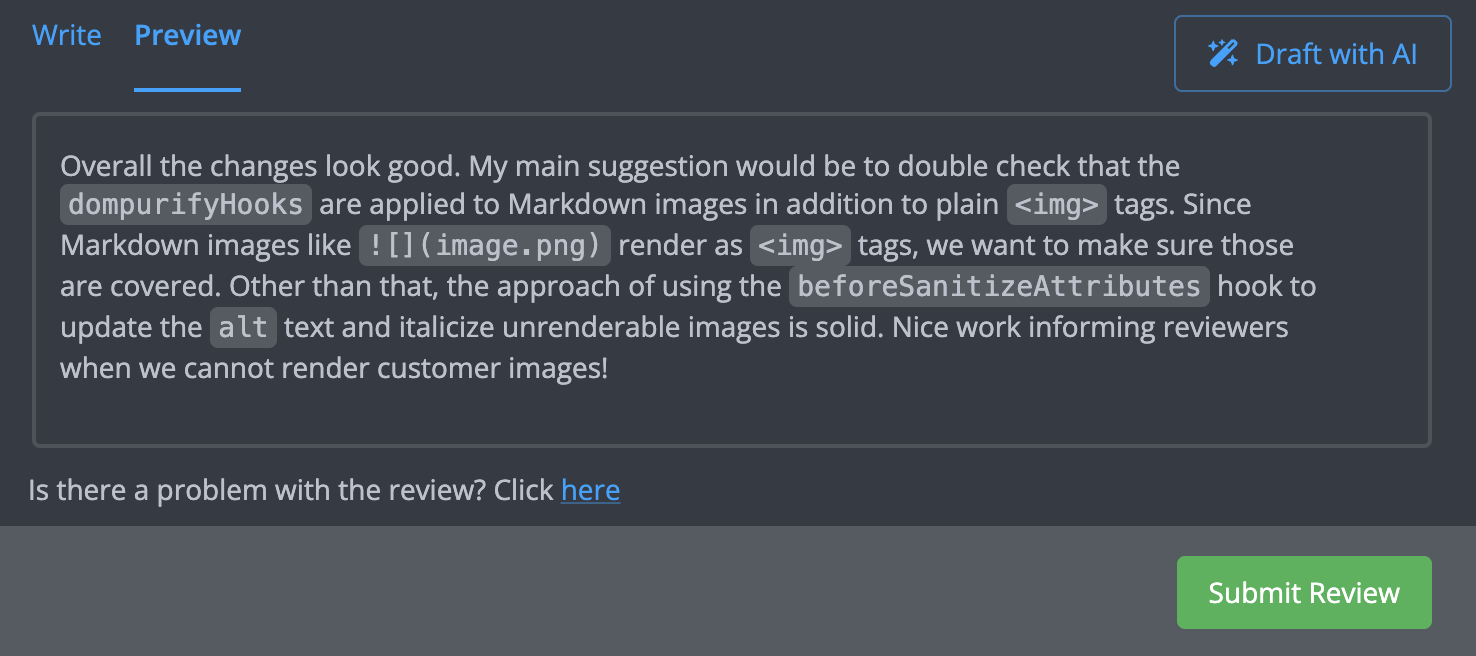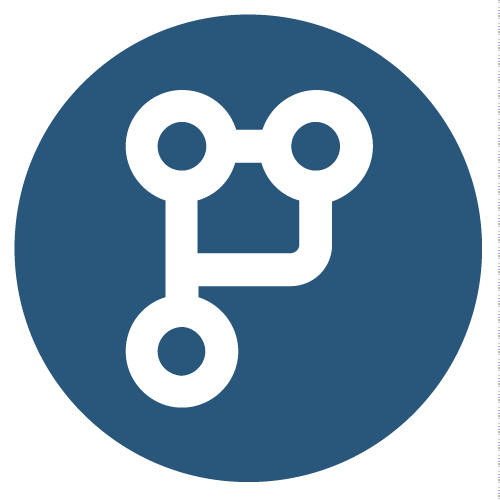
At HackerOne PullRequest, we are always looking for new ways to integrate AI into the fabric of our code review processes. It is amazing how many features we are able to build today utilizing some of the newer AI technologies that were just not possible a couple years ago. Many of the ways we are using AI are behind the scenes and not directly visible to our customers. However, even these subtle changes have impact on the end result of quality code reviews. In this post, we will explore how we are using AI to save reviewers time and improve the consistency of our code reviews.
Enhanced Review Summaries with Generative AI
One of our many recent AI-driven features is the use of generative AI to draft review summaries. Traditionally, code review on platforms like GitHub involves a combination of inline comments and a final summary, providing a cohesive view of the reviewer’s thoughts and recommendations. This summary is crucial, especially for a third-party code review, as it encapsulates the essence of the review, highlighting key areas of concern or appreciation.
However, creating these summaries can be time-consuming and repetitive for the reviewer, often involving the collation of many inline comments into a coherent narrative. This is where our AI-driven approach comes into play. Our generative AI stack is now capable of drafting a preliminary summary based on the inline comments and context of the review. This draft serves as a starting point for reviewers, who can then refine and personalize the summary before sharing it with the client.
How Does This AI Feature Work?
As with all of our AI-driven features, we ensure that your code is not sent to third-party services unless you have opted in. However this feature does not require opt-in and runs within our secured infrastructure, ensuring that your code and reviewer-feedback is not exposed to external services.
When a reviewer completes their inline comments and is ready to submit a review to the customer, the AI kicks in, analyzing the comments and the code changes. It then generates a draft summary that encapsulates the key points of the review.
The beauty of this system, and many of our AI features, lies in the flexibility we have from a human network of experts to verify AI outputs. Reviewers are not bound by the AI-generated draft. Instead, they can edit, augment, or completely overhaul the draft as they see fit. This ensures that the final summary is not only accurate and comprehensive but also carries the reviewer’s personal touch and expertise.

The Benefits of AI-driven Summaries
We think that the introduction of AI in drafting review summaries brings a plethora of benefits:
Time Efficiency: By automating the initial draft of the summary, we significantly reduce the time reviewers spend on this task. This efficiency allows them to allocate more time to thorough analysis and verification of the code, ensuring higher quality reviews.
Consistency in Reviews: AI-generated summaries offer a standard format and structure, ensuring consistency across reviews. This is particularly beneficial for clients who deal with multiple reviewers, as it provides a uniform review experience.
Enhanced Focus on Security and Correctness: With AI handling the summarization, reviewers can focus more on crucial aspects like security vulnerabilities and implementation correctness. This focus aligns with our commitment to delivering not just code reviews, but secure code reviews.
Scalability and Learning: The AI model continuously learns from new reviews, adapting and improving over time. This means the summaries will become more accurate and relevant as the system processes more reviews.
Conclusion: A Step Towards Smarter Reviews
The integration of AI in drafting review summaries is just one of the many ways we’re leveraging technology to enhance the code review process. By reducing the time and effort involved in creating summaries, we’re enabling our reviewers to focus on what they do best: ensuring the delivery of secure, efficient, and high-quality code. This feature, seemingly small, is a significant step towards smarter, more efficient code reviews, and is a testament to our commitment to innovation in the code review space.
As we continue to explore and implement AI-driven solutions, we’re excited about the potential to revolutionize the way code review is conducted, making it faster, more consistent, and more insightful than ever before.
